Menu
Hot-Topics
February 19, 2026 | SCOTUS Reaffirms Fourth Amendment Standard for Police Responding to Household Emergencies
Category: Historical
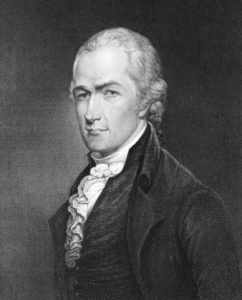
Hylton v United States: Apportionment of Direct Taxes
In Hylton v United States, the U.S. Supreme Court upheld an annual tax on carriages was a valid exercise of Congress’ constitutional authority. It specifically ruled that the tax was not a direct tax that required compliance with Article 1’s ...

Selective Draft Law Cases Hold Conscription Is Constitutional
In Arver v. United States, 245 U.S. 366 (1918), the U.S. Supreme Court held that Congress was authorized under the Constitution to compel military service pursuant to the Selective Service Act of 1917. The consolidated cases are also known as the...

Standard Oil Company of New Jersey v. United States
In Standard Oil Company of New Jersey v. United States, 221 U.S. 1 (1911), the U.S. Supreme Court held that the Standard Oil Company was guilty of operating a monopoly in violation of the Sherman Anti-Trust Act. While the Court upheld the app...
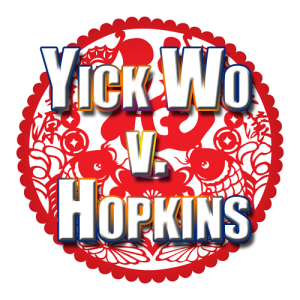
Yick Wo v. Hopkins: Neutral Law and the Equal Protection Clause
In Yick Wo v. Hopkins, 118 U.S. 356 (1886), the U.S. Supreme Court first held that discriminatory enforcement of a facially neutral law violated the Equal Protection Clause of the Fourteenth Amendment. The Facts of the Yick Wo v. Hop...

In re Eugene v. Debs: The Commerce Clause & Labor Strike Injunction
In In re Eugene V. Debs, 158 U.S. 564 (1895), the U.S. Supreme Court upheld the government’s use of a court injunction to order striking workers back on the job. In a unanimous decision, the Court held that the federal government had the right ...
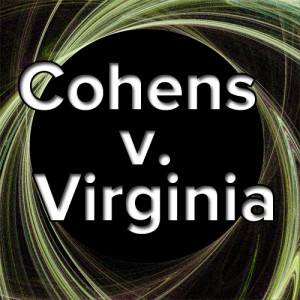
Cohens v. Virginia: U.S. Supreme Court Trumps State Courts
In Cohens v. Virginia, 19 U.S. 264 (1821), the U.S. Supreme Court established itself as the highest court in the county. The justices expressly held that the Court had appellate jurisdiction over state court criminal law decisions involving alleg...
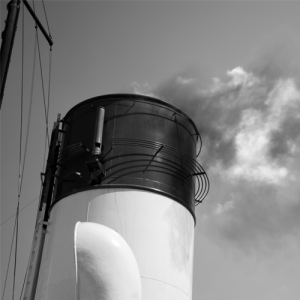
Livingston v. Van Ingen: NY Appeals Court Tackles Commerce Clause
In Livingston v. Van Ingen, 9 Johns. R. 507 N.Y. 1812, the New York Court for the Correction of Errors upheld a New York statute authorizing a monopoly on steam boat transportation in New York waters. The appeals court decision, which was later n...
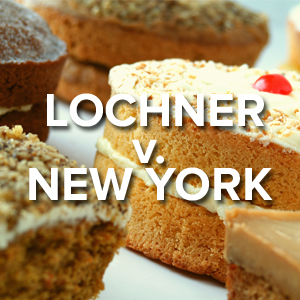
Lochner v. New York: Liberty of Contract
In Lochner v. New York, 198 U.S. 45 (1905), the U.S. Supreme Court struck down a New York law that established maximum working hours for bakers. According to the majority, the right to buy and sell labor was a liberty interest protected under the...

Supreme Court Upholds Antitrust Act in Northern Securities Co. v. United States
In Northern Securities Co. v. United States, 193 U.S. 197 (1904), the U.S. Supreme Court held that a holding company formed to create a railroad monopoly violated the Sherman Antitrust Law. The government’s victory in the case helped solidify P...
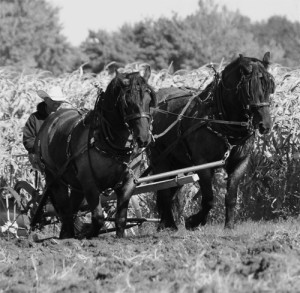
Pollock v. Farmers Loan & Trust Co.: Federal Income Tax Violated the Constitution
In Pollock v. Farmers Loan & Trust Co., 157 U.S. 429 (1895), the U.S. Supreme Court held that federal taxes on interest, dividends and rents violated Article 1 of the U.S. Constitution. In 1913, the adoption of the Sixteenth Amendment nullifi...
Previous Articles
SCOTUS Decision in Bowe v. United States Is First of the 2026 Term
by DONALD SCARINCI on February 5, 2026
In Bowe v. United States, 607 U.S. ___ (2026), the U.S. Supreme Court held that Title 28 U.S.C. § ...
SCOTUS Rules State Can’t Immunize Parties from Federal Civil Liability
by DONALD SCARINCI on January 29, 2026
In John Doe v. Dynamic Physical Therapy, LLC, 607 U.S. ____ (2025) the U.S. Supreme Court held that...
Supreme Court to Address Racial Discrimination in Jury Selection
by DONALD SCARINCI onWhile the U.S. Supreme Court has concluded oral arguments for the year, it continues to add cases t...
The Amendments
-
Amendment1
- Establishment ClauseFree Exercise Clause
- Freedom of Speech
- Freedoms of Press
- Freedom of Assembly, and Petitition
-
Amendment2
- The Right to Bear Arms
-
Amendment4
- Unreasonable Searches and Seizures
-
Amendment5
- Due Process
- Eminent Domain
- Rights of Criminal Defendants
Preamble to the Bill of Rights
Congress of the United States begun and held at the City of New-York, on Wednesday the fourth of March, one thousand seven hundred and eighty nine.
THE Conventions of a number of the States, having at the time of their adopting the Constitution, expressed a desire, in order to prevent misconstruction or abuse of its powers, that further declaratory and restrictive clauses should be added: And as extending the ground of public confidence in the Government, will best ensure the beneficent ends of its institution.
Awards





